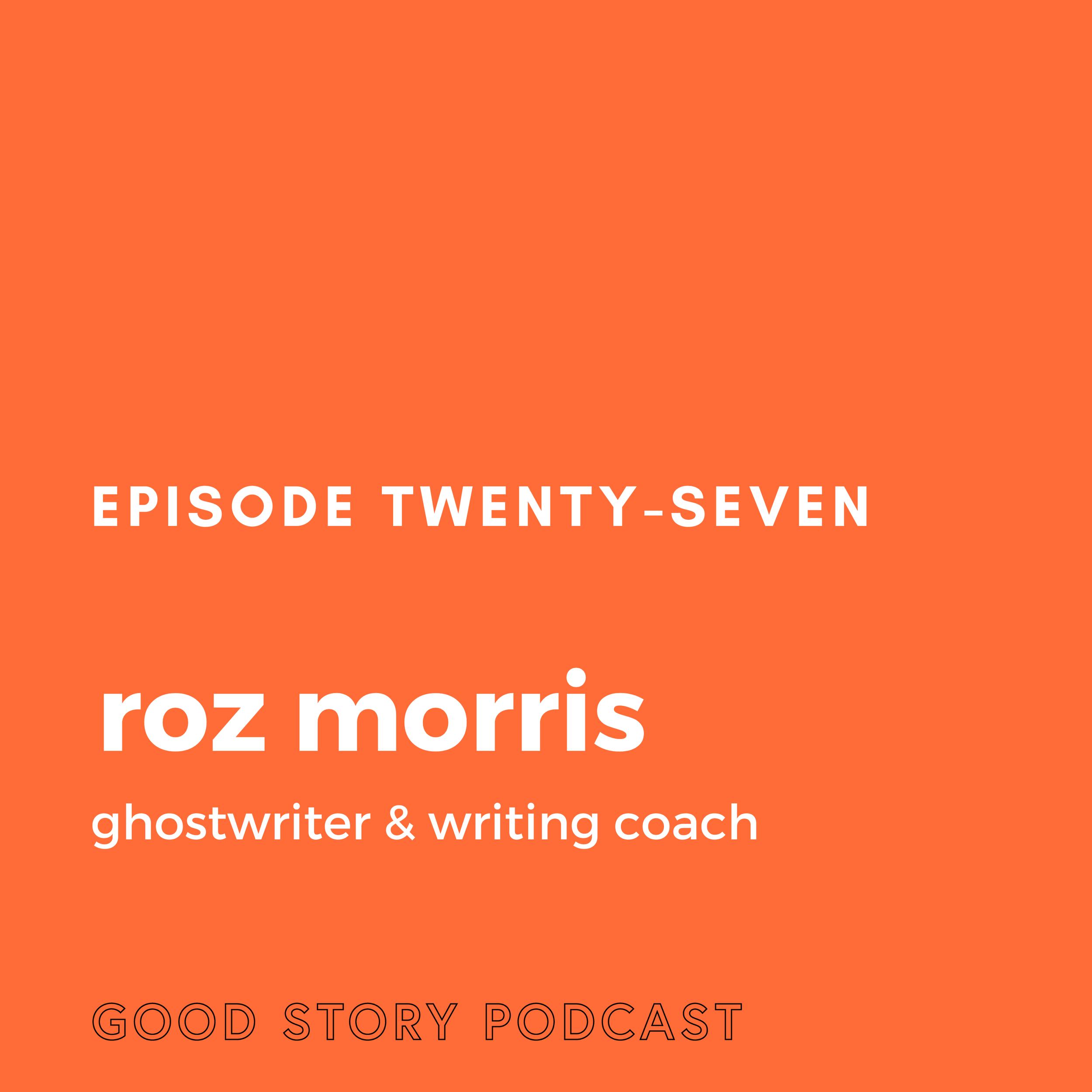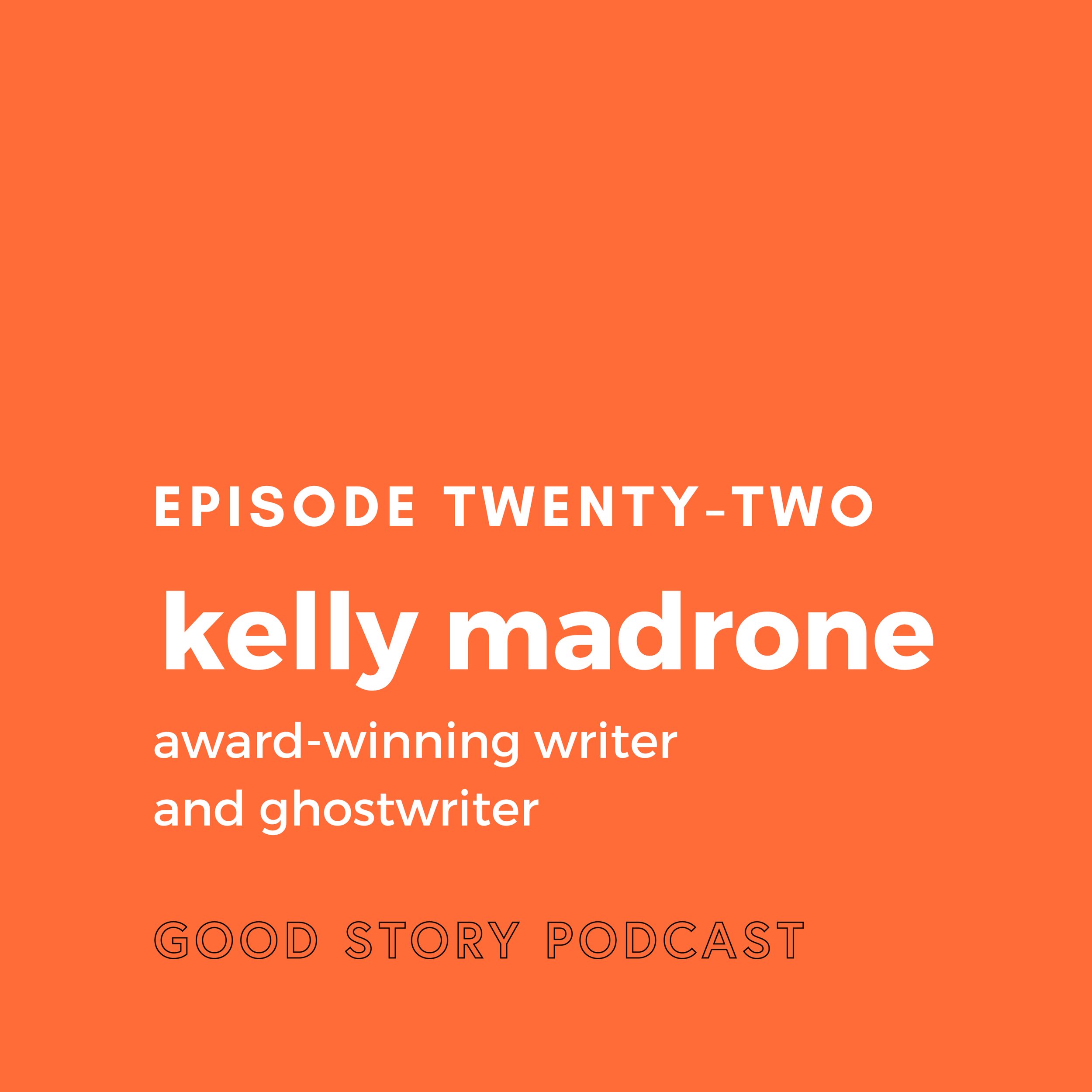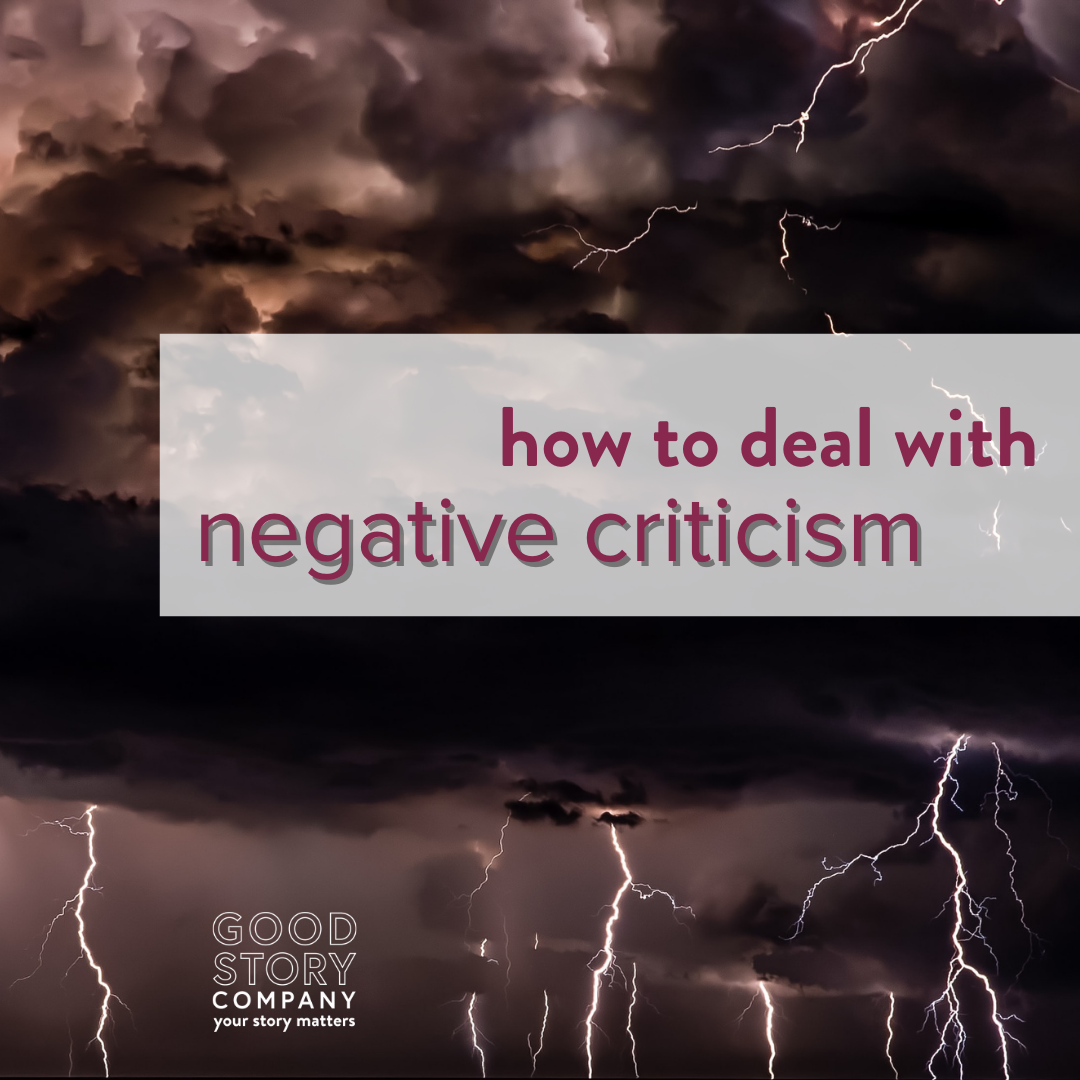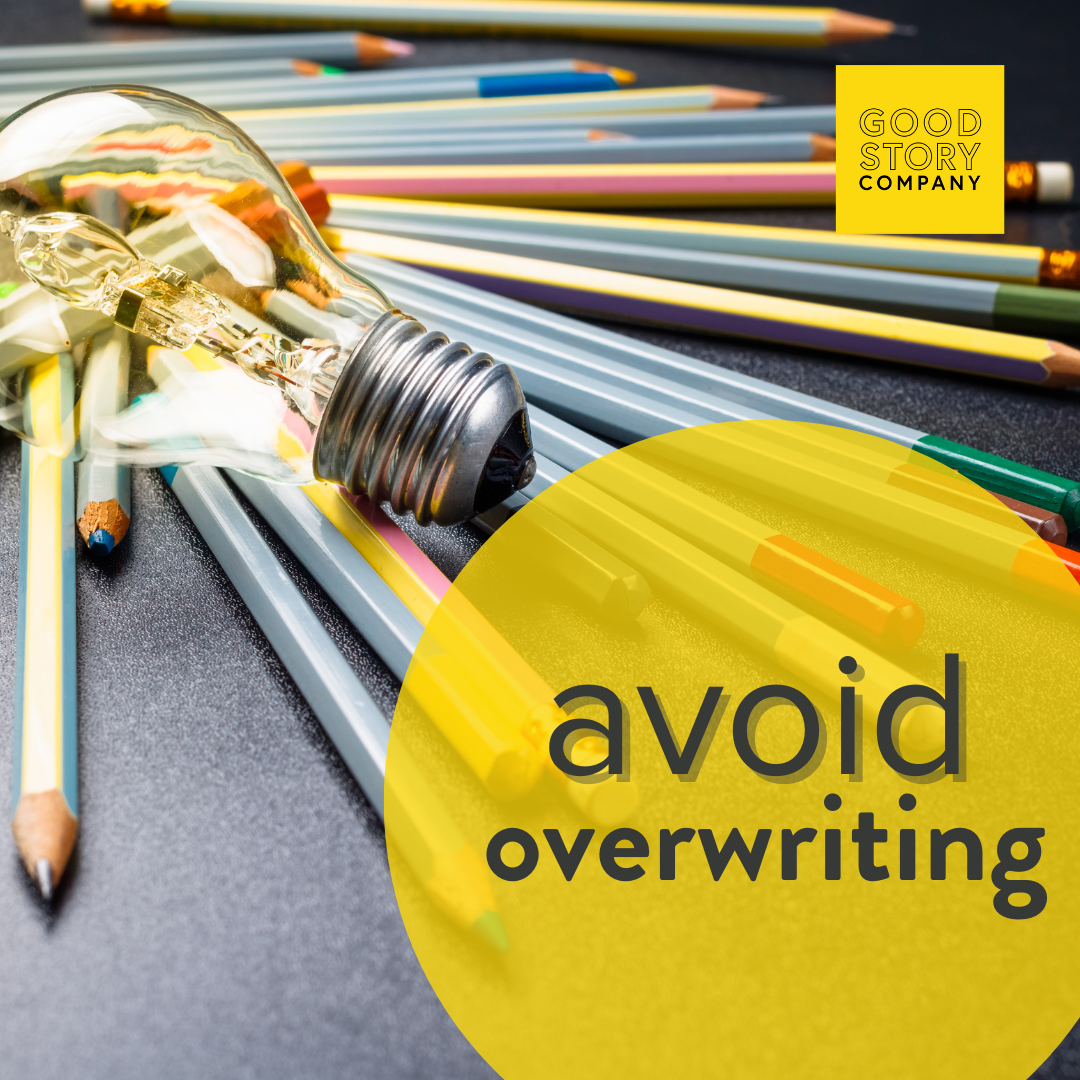

Episode 27: Roz Morris, Ghostwriter and Writing Coach
Roz Morris and Mary dive into the mechanics of storytelling and discuss how to connect with your audience—whether you're writing someone else's story or you're telling your own.

A Million Bad Words
In order to write, you have to WRITE! Spending time learning theory, taking classes, and reading books are beneficial, but ultimately it is practice that will make you a better writer. Learn how a million bad words can turn into a good story.

Episode 22: Kelly Madrone, Award-Winning Writer and Ghostwriter
Ghostwriter Kelly Madrone joins us to talk about writing as someone else, modulating a professional potty mouth, and creating a story arc in memoir.

How to Deal With Negative Criticism
Many writers struggle with how to deal with negative criticism. Not all writing feedback you receive in your lifetime will be “constructive criticism”. Some of it may feel like straight-up criticism criticism, or worse, destructive criticism. Ouch! Here are some thoughts on bouncing back from a devastating writing critique, and what to do next.

When is a Manuscript Finished?
Tips on looking at your work with clarity so you can determine your personal "done," as well as what to do when you reach that finish line.

Writing Descriptions
Dust motes swirling in the gloom are enchanting, but do you really need to describe them in detail? Let’s look at some guidelines for writing descriptions so you can quench your thirst for gorgeous imagery without sacrificing the pacing of your story.

What Is a Sensitivity Reader?
There is a lot of controversy in the writing world about sensitivity readers, so what is a sensitivity reader? What does a sensitivity reader do? Learn more about this specializing writing and editing role here.

More Than Words: Avoid Clichés
As writers, we know we should try to avoid clichés and stereotypes. But you might not think of unique imagery as you’re writing your first draft, so you drop in a cliché as a placeholder. When revisiting a manuscript to self-edit, though, many writers often overlook the cliché that’s right in front of them: the clichéd image.

Setting Writing Critique Expectations
Setting writing critique expectations is important, especially when a writer starts out getting writing feedback. A lot of writers are in a good headspace when they approach critique. Nervous, maybe. Vulnerable, of course. But eager to learn and give back to a fellow writer.

The Core of a Story with Roz Morris
Writer, writing teacher, ghost writer, and general literary icon Roz Morris joins Mary Kole for an interview on the Good Story Speaker Series. They dive into the mechanics of storytelling and discuss how to connect with your audience—whether you're writing someone else's story or your telling your own.

Writing An Authentic Memoir with Kelly Madrone
Award-winning writer and ghostwriter Kelly Madrone joins us to talk about writing as someone else, modulating a professional potty mouth, and how to create a nuanced story arc in memoir.

The End of Camp NaNoWriMo: What to Do with Your Complete Manuscript
Now that you have a complete manuscript, you have some exciting decisions to make about what you want to do next. Whether Camp NaNoWriMo was a fun personal project or your first step on the path to publication, now is a great time to use your momentum to take your writing to new heights.

Episode 6: Gail Carson Levine, Historical and Fantasy Author
Historical and fantasy author Gail Carson Levine interviews with Mary Kole. She shares thoughts on the writing process, world-building, and her latest book, A Ceiling Made of Eggshells.

Reaction into Action: How to Turn Negative Feedback Around
Negative feedback can be confusing and hard to hear. Turn what feels like “no” into a mission to “go”!

Writing Critique
You can become a better writer by giving and receiving actionable advice. Here’s how.

In Favor of Present Tense Writing
One of the first decisions we have to make before writing is what tense to use. Present tense writing is often overlooked in favor of past tense—but when is present tense the better choice?

Put Your Words Down, Flip Them, and Reverse Them: Writing Your Memoir in Reverse Chronology
If you’re writing a memoir, you have to write your life events exactly the way they happened—but you don’t have to write them in order! Give your readers a backwards walk through your remarkable life with reverse chronology.

Developmental Editing
Developmental editing as it applies to nonfiction and memoirs specifically. Readers who buy nonfiction books are coming to that book with a specific need. You need to sell them on your thesis. You need to sell them that they have that need.

Revision Process
I work as a freelance editor. I work with writers at thousands of projects a year on the revision process. I provide revision services. Every writer that I work with and every writer out there, I want them to engage in their own editing, their own revision process, because I do believe that a lot of writing happens in rewriting.

Avoid Overwriting
Overwriting happens often in early drafts, as writers try to get the story down and figure they’ll fix things later. Sometimes details draw us in, but often they can distract readers, pushing them to think about unrelated things ... and then to stop reading.
